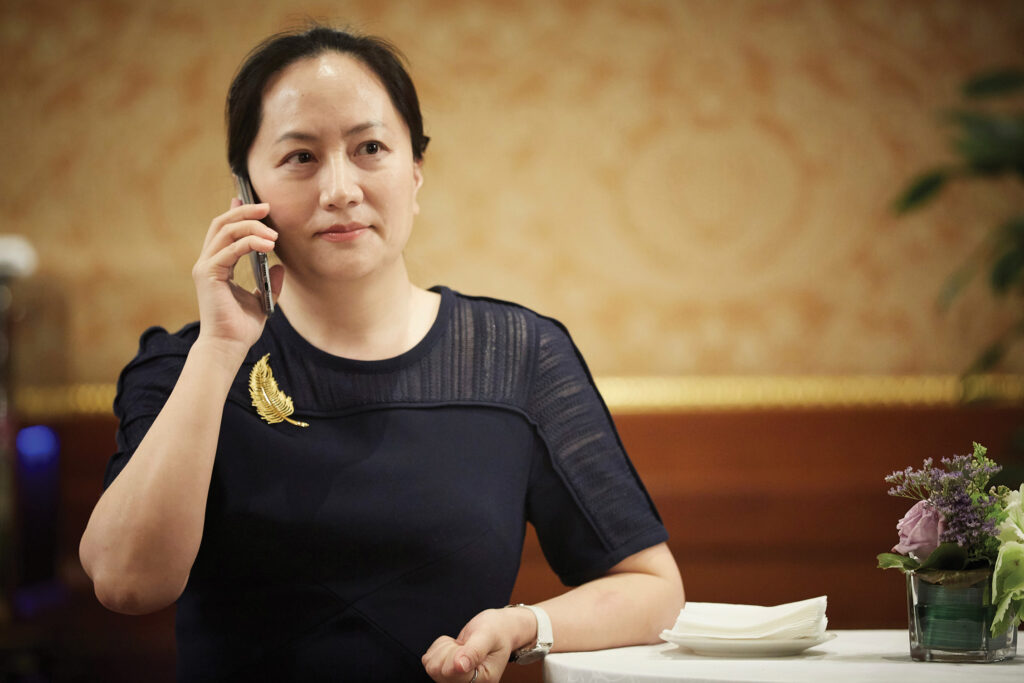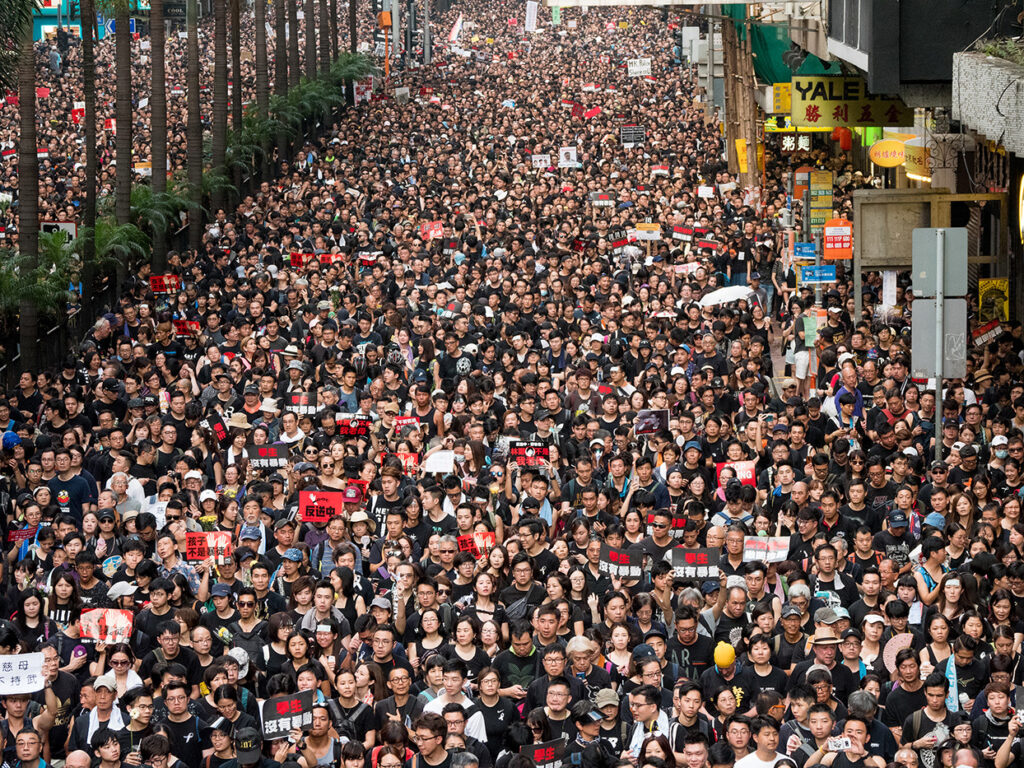The Crisis In Hong Kong
And the deterioration of Canada-China relations
On May 27th, 2020, the British Columbia Supreme Court of Justice allowed the extradition of Huawei’s Chief Financial Officer, Meng Wanzhou, to the United States to face charges of fraud. The decision infuriated the Chinese government in Beijing.
Beijing’s condemnation of Canada turned into Ottawa’s condemnation of China in June 2020 when China passed a National Security Law for Hong Kong that would significantly curtail the democratic rights and freedoms that have differentiated Hong Kong from the mainland.
These two episodes have led to a significant deterioration in relations between Canada and China. Before examining the recent strain in the relationship, we must turn to the historical context of Hong Kong’s governance.
A Modern History of Hong Kong
Much of the 19th century saw Britain pitted against the Qing Dynasty in China during the Opium Wars, which gradually increased its territorial hold over Hong Kong. On July 1, 1898, Britain obtained a 99-year lease over the remaining territory of Hong Kong from China until July 1, 1997.
British Hong Kong was ruled much differently than mainland China, the latter having come under the rule of Mao Zedong’s Communist forces in 1949. Hong Kong became an economic powerhouse and ranked highly on the Human Development Index.
In the 1970s and 1980s, the UK and China began to discuss Hong Kong’s future as the expiry of the lease was approaching. These talks culminated in the Sino-British Joint Declaration of 1985 whereby China agreed that Hong Kong would enjoy political and social autonomy for a period of 50 years in accordance with China’s “one country, two systems” policy.
Following the handover in 1997, Hong Kong became a Special Administrative Region of China. It would continue to govern itself economically and would have its own de facto mini constitution (the Hong Kong Basic Law) which enshrined democratic rights like freedom of speech and freedom of assembly. It also retained its English common law system, unlike mainland China’s civil law system. The main areas that Beijing would control were defense and national security. This Basic Law was to take precedence over Beijing’s governance, at least until 2047 though there was no clear blueprint
for Hong Kong’s status after the 50-year period.
The Basic Law also included Article 23, which among other things stipulates that the Hong Kong Special Administrative
Region shall enact its own laws to prohibit any act of treason, secession, sedition, or subversion against China’s Central Government, theft of states secrets, or foreign political interference. Further, the Chief Executive would not be elected directly by the citizens of Hong Kong but rather by an Election Committee and appointed by the Central government in China before taking office. This ensured that Hong Kong’s top leadership would never sway too far from Beijing’s orbit. The political consequence of this has been an incongruence in Hong Kong’s governance whereby
the executive leadership is consistently pro-Beijing while the people are largely pro-democracy.

Photo credit: Yeung Man Chun
A Precursor to the Hong Kong Security Law of 2020
A central issue that has come to define Hong Kong politics is the degree of Beijing’s influence over the territory. Since 1997, Beijing — the ruling capital of mainland China — has flirted with attempts to curb Hong Kong’s political autonomy and its democratic governance.
In 2003, at almost the same time as the SARS outbreak, the Hong Kong government tried to pass a National Security bill that aimed to comply with Article 23 of the Basic Law. The proposed enactment would have fused the concepts of government and country, making it easier to label political opposition as treason. It would have also allowed police to enter residential buildings and arrest individuals without a warrant, and prohibit speech that the government deemed inflammatory. Mass demonstrations in the streets and resignations of Hong Kong government members resulted in the proposed bill being shelved.
In 2004, China ruled that any changes to Hong Kong’s election laws would have to be approved by the central government in Beijing, thus; giving it veto power over Hong Kong’s moves toward greater democracy. Britain accused China of political interference in Hong Kong in contravention of the Sino-British
Joint Declaration.
The years that followed saw Hong Kong’s political landscape gripped by struggles between pro-democracy bloc vying to maintain self-governance from an increasingly influential Beijing and a pro-Beijing camp (like the Democratic Alliance for the Betterment and Progress of Hong Kong) determined to bring Hong Kong closer to the mainland’s sphere of influence.
China Passes the Honk Kong National Security Law
Since the prospect of a security law was widely unpopular among the people of Hong Kong, China decided to step in and pass the law itself. It did so in a secretive process with little to no consultation with the people, legislature, or judiciary of Hong Kong. Breaking from tradition, it did not make any draft of the bill available before it was passed. Instead, scant details of the law were propagated in bits and pieces by Chinese state media until the law came into effect on July 1, 2020 — a symbolic date as it marked the 23rd anniversary of Britain’s handover of Hong Kong to China.
The security law gives China’s central government in Beijing more powers to crack down on political dissidents, foreign governments, media, and non-governmental agencies in Hong Kong. Some of its key provisions include the following:
• Those found guilty of the most serious offences dealing with national security, including secession, subversion, terrorism, or collusion with a foreign country or external elements, face a maximum sentence of life imprisonment;
• Damaging or destroying public transport facilities can be considered terrorism;
• Article 38 applies the law’s provisions to offences that occur anywhere outside Hong Kong, including by non-permanent residents and others alike who live abroad;
• Any person convicted under the new law will not be allowed to stand for public office;
• A new national security office is to be opened in Hong Kong with its own law enforcement personnel that will be run by Beijing rather than the local authority. This office can refer some cases to be tried in mainland China, though Beijing claims this will only be a handful of cases;
• A Beijing-appointed adviser will oversee the establishment of a national security commission by Hong Kong to enforce the security law;
• Hong Kong’s chief executive will have the power to appoint judges to hear national security cases, raising fears about judicial autonomy;
• Beijing (rather than Hong Kong’s judicial or policy bodies) can decide how the law is interpreted. The security law takes precedence over any local Hong Kong law;
• Some trials will be heard behind closed doors;
• Suspects can be put under surveillance and wire-tapped;
• The law strengthens the management of foreign non-governmental organizations and news agencies.
Chinese authorities have defended the law as a necessary return of stability to Hong Kong, which has seen waves of pro-democracy protests in recent years. Beijing views the Hong Kong question as a matter of Chinese sovereignty. It has criticized the West’s condemnation of the security law as a Western attempt to meddle in internal Chinese affairs. On the other hand, many observers, foreign policy experts, and HongKongers consider the law a major setback in a territory that has enjoyed decades of freedom and civil liberties and has been a major hub for global trade and finance. They view the security law as a human rights issue and fear that the law erodes the hallmarks of what distinguishes Hong Kong from the mainland, including its freedom of speech, freedom of assembly, free flow of information, and legal transparency.

Photo credit: Yeung Man Chun
Just a day after the new law was enacted, hundreds of people were arrested in the city as scores of people took to the streets in mass protests. Several outspoken Twitter accounts belonging to HongKongers were voluntarily deleted for fear of any potentially incriminating political posts. There was also a surge in sales of VPN software used to circumvent China’s Internet censorship and digital surveillance. Two opposition political parties also announced that they would dissolve themselves.
A Thorn in the Side of Sino-Canadian Relations
Upon taking the helm as Canada’s Prime Minister in 2015, Justin Trudeau looked to China in his efforts to open new markets for Canadian businesses. President Trump’s U.S. brand of protectionism and the ensuing trade wars with both Canada and China in 2016 provided a unique opportunity for Canada and China to foster a more open trade relationship. The two sides even engaged in talks for a free trade agreement, but the hope for a golden era in Canada-Chinese relations was short-lived as a free trade agreement never materialized.
Canada is home to a vibrant Hong Kong community numbering roughly 215,000. Many of whom have dual citizenship and are concerned about the growing erosion of civil liberties and democracy in Hong Kong. Approximately 300,000 Canadian citizens also live in Hong Kong, but Ottawa has warned them that the new law puts Canadians at increased risk of arbitrary detention on national security grounds and possible extradition to the Chinese mainland.
Extraditing someone to Hong Kong is now akin to extraditing that person to mainland China, whose criminal courts have a 99.9% conviction rate
As a result of the new law, Canada has suspended its extradition treaty with Hong Kong for fear that extraditing someone to Hong Kong is now akin to extraditing that person to mainland China, whose criminal courts have a 99.9 percent conviction rate. Canada also stopped the sale of sensitive military and dual-use goods (such as pepper spray and rubber bullets) to the Hong Kong Police Force.
The law has been one part in a series of setbacks in Canada’s relationship with China. Back in February, Canada’s ambassador to China, Dominic Barton, acknowledged that there was a real chill in the tense relationship between the two countries. He remarked that both country’s relations had fundamentally changed after the arrest of Meng Wanzhou in December of 2018.
In that episode, Wanzhou, Huawei’s Chief Financial Officer, was detained by Canadian border officials in Vancouver and later arrested by the RCMP on a provisional extradition order by the U.S. to face charges for allegedly using a Huawei subsidiary in breach of U.S. sanctions against Iran. Despite the enormous international political consequences, the Trudeau government has insisted that the arrest was unavoidable as Canada has an international legal obligation to abide by its extradition treaty with the U.S. China viewed it as an example of Canada being beholden to U.S. interests and carrying out Washington’s dirty work. In retaliation, China arrested two Canadians, Michael Kovrig and Michael Spavor, just nine days after Wanzhou’s arrest and prosecuted them for espionage. It also blocked imports of Canadian pork and canola.
The displeasure with China’s actions has trickled to the Canadian public. A poll conducted by the University of British Columbia last November found that less than a third of Canadians viewed China positively.
Canada’s spat with China has also spilled into the domestic telecommunications realm. In early June, Canada`s big three telecom companies — Bell, Rogers and Telus — shunned Chinese-based Huawei`s bid to supply the Canadian industry`s next-generation 5G network. Instead, they opted to go with Nordic companies Ericsson and Nokia. This followed the U.S. ban on domestic mobile providers from buying new Huawei 5G equipment after the end of the year, along with the UK’s removal of Huawei from its 5G network. The UK also rallied a “5G alliance” of democratic allies aimed at avoiding reliance on China’s multinational giant both for economic reasons and for fear that China could use Huawei’s global 5G infrastructure to conduct espionage. The group consisted of the G7 (Canada, US, UK, France, Germany, Italy, and Japan) plus Australia, South Korea, and India. These moves are significant as Huawei has been dominating the growing rush to develop the global 5G infrastructure.
An Uncertain Future for Canada-China Relations
Canada-China relations continue to deteriorate. It will take several years before they are poised for a restart. The fault lines in the relationship are multifaceted and cover issues from geopolitics and human rights to telecommunications and foreign trade. The COVID-19 pandemic and the ensuing hit to the global economy has only added to the tense climate.
Both the Meng Wanzhou episode and China’s Hong Kong Security Law have significantly strained the relationship. Despite Beijing’s condemnation and its warning of “grave consequences” if Meng was not released, Prime Minister Trudeau has refused to intervene to free her. Further, Canada views its position on Hong Kong as part of its long-standing tradition of advocating for international human rights whereas China insists that other countries should respect its sovereignty and should not intervene in its internal affairs.
China remains isolated on these two issues, and its woes go beyond its relationship with Canada. There is now a concerted effort by other liberal democracies to isolate and punish China for its curtailment of democracy in Hong Kong and its dominance over smaller Asia-Pacific countries in the South China Sea.
The days of Panda diplomacy with China seem to be a distant memory. We have entered a new dark age in Canada-China relations. Only time will tell whether the outcome of the 2020 U.S. Presidential Election will play a major role in Canada’s evolving relationship with China.









Testymo
5 years agoThis is really amazing! Aliquid ex ea commodi consequatur?
Mike Smythson
5 years agoYes sure!
Sed ut perspiciatis unde omnis iste natus sit voluptatem accusantium doloremque laudantium.